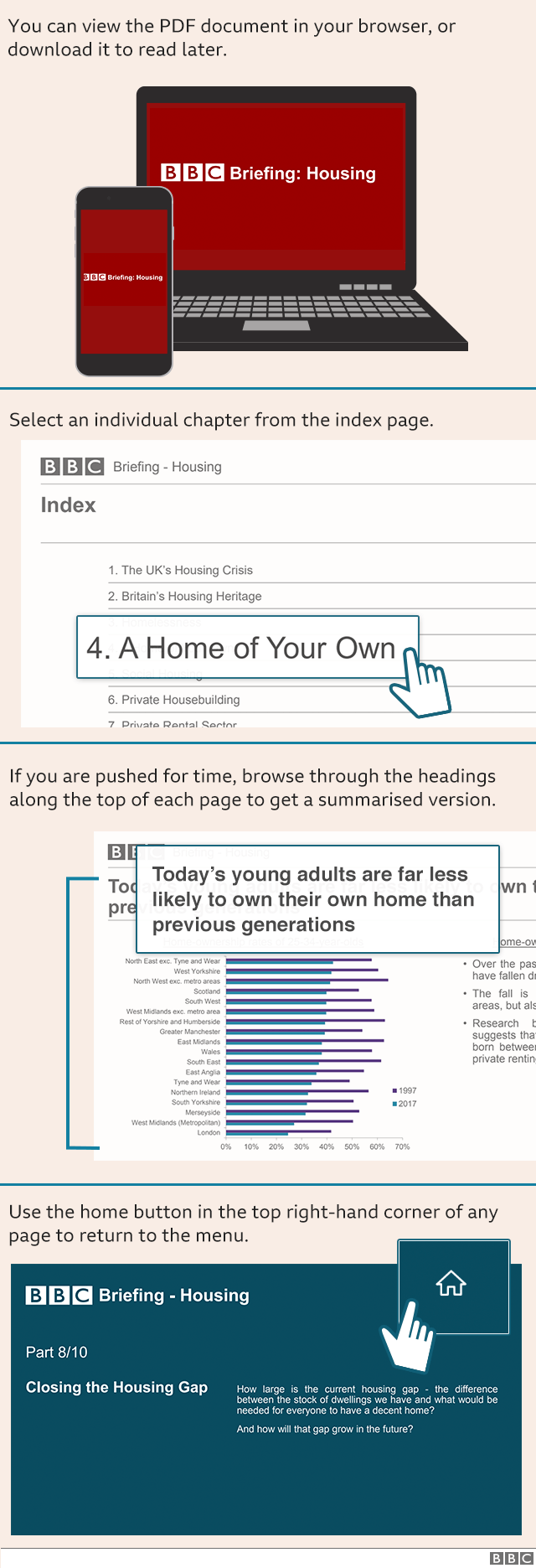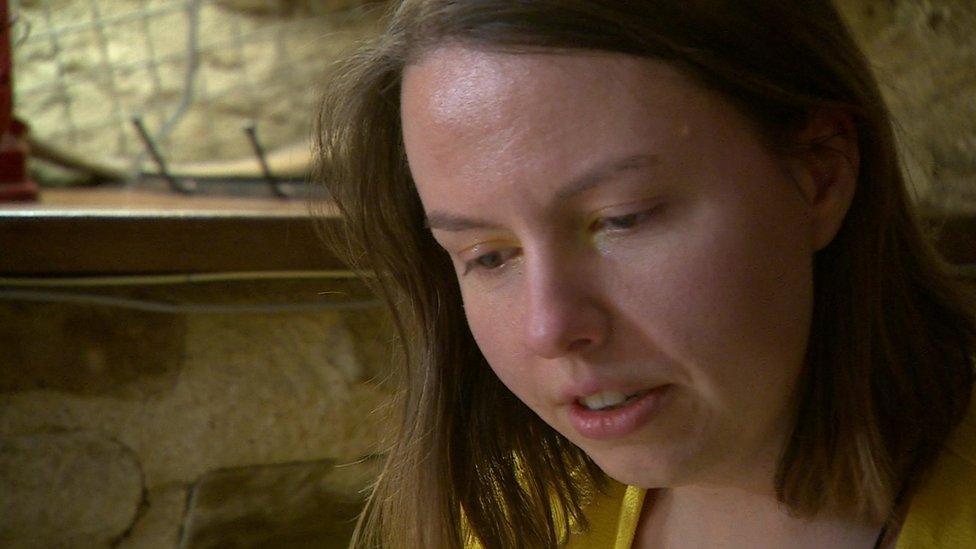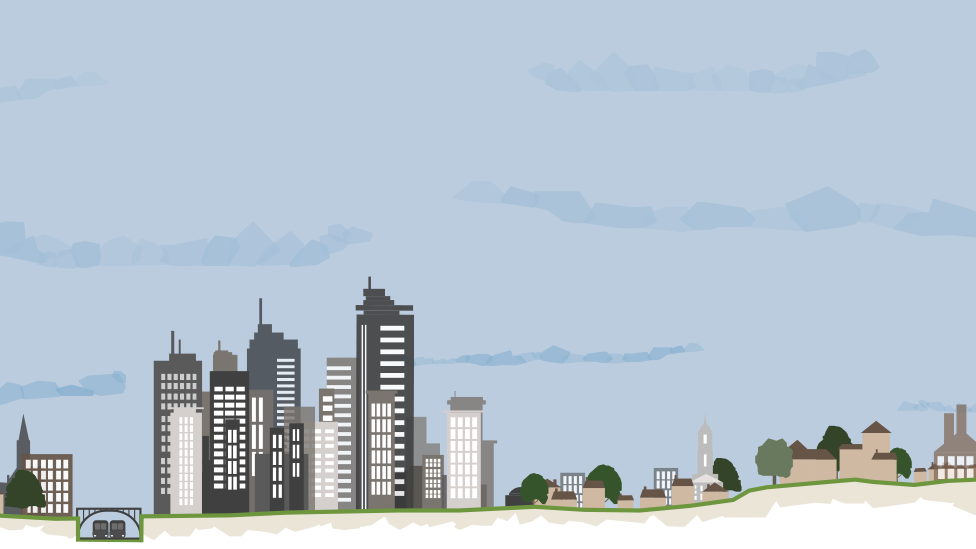BBC Briefing on housing: How do I use it?
- Published

The UK is in the middle of what many describe as a housing crisis.
Demand for homes has increased, fuelled in part by a rising population, but construction work has failed to keep up with the pace of that demand.
This BBC Briefing estimates that the size of the housing supply gap - the difference between the available stock and the number of homes needed for everyone to have a decent place to live - may be in excess of one million homes.
What to do about it is a question that divides policymakers, economists and the public.
There is no single easy solution - it all depends on your circumstances and where you live.
The situation is made more complicated because responsibility for housing policy is spilt between different bodies. And over the past 40 years, direct government powers to increase housing supply have given way to more private sector involvement.
At the same time, public awareness of housing as an issue is increasing. Homelessness and overcrowding are on the rise, home ownership has been declining and there is a shortage of social homes.
That's why housing has been chosen as the third topic for the BBC Briefing - a series of in-depth online guides analysing the big issues in the news.
The housing guide aims to provide useful context, reliable data and evidence in one place, which you can read wherever you are.
If you'd like some tips on navigating it, scroll down this page.


This project is the BBC's response to your request for more transparency and better explanation of the facts behind the headlines.
See the highlights

The BBC Briefing has inspired a collection of special reports on the issue of housing from across BBC News to help you find out how it affects you.
On Tuesday, 25 February, The Next Episode podcast explores the housing issue from the perspective of the Gypsy, Roma and Traveller communities, which say they have nowhere else to live if the government increases police powers to tackle unauthorised encampments. Listen via the BBC Sounds app from Wednesday, 26 February.
The BBC's director of news and current affairs, Fran Unsworth, says: "In a fast-changing world with increasing polarisation and disinformation, it's hard to understand the big issues of the day.
"So BBC News is trying a new way to help you make sense of complex issues."
Our previous two briefings on energy, external and immigration, external are available to download.
How to navigate your way through the BBC Briefing


If you are unfamiliar with any terminology in the BBC Briefing, please refer to the glossary, external at the end.
If the chapter navigation or home buttons do not work, try downloading the document and opening it with a different PDF reader.
The research in the BBC Briefing is based on the latest available data and analysis, and is subject to changes in policy or the release of new information.
And if your interest has been captured by the one on housing, external, you can read more about the topic here.
A Michael Attwell Productions publication for the BBC, with special thanks to:
Dame Kate Barker, economist and former member of the Bank of England's Monetary Policy Committee, external, whose independent review, external of the UK housing market was published in 2004.
Toby Lloyd, former policy director of Shelter, external and former Number 10 housing adviser (to Prime Minister Theresa May).
Neal Hudson, housing market analyst and director of Residential Analysts Ltd, external.


Do you have a question about housing?
In some cases your question will be published, displaying your name, age and location as you provide it, unless you state otherwise. Your contact details will never be published. Please ensure you have read our terms & conditions and privacy policy.
Use this form to ask your question:
If you are reading this page and can't see the form you will need to visit the mobile version of the BBC website to submit your question or send them via email to YourQuestions@bbc.co.uk, external. Please include your name, age and location with any question you send in.

- Published23 February 2020

- Published24 February 2020

- Published3 January 2020

- Published9 July 2020

- Published16 October 2019

- Published3 July 2019
